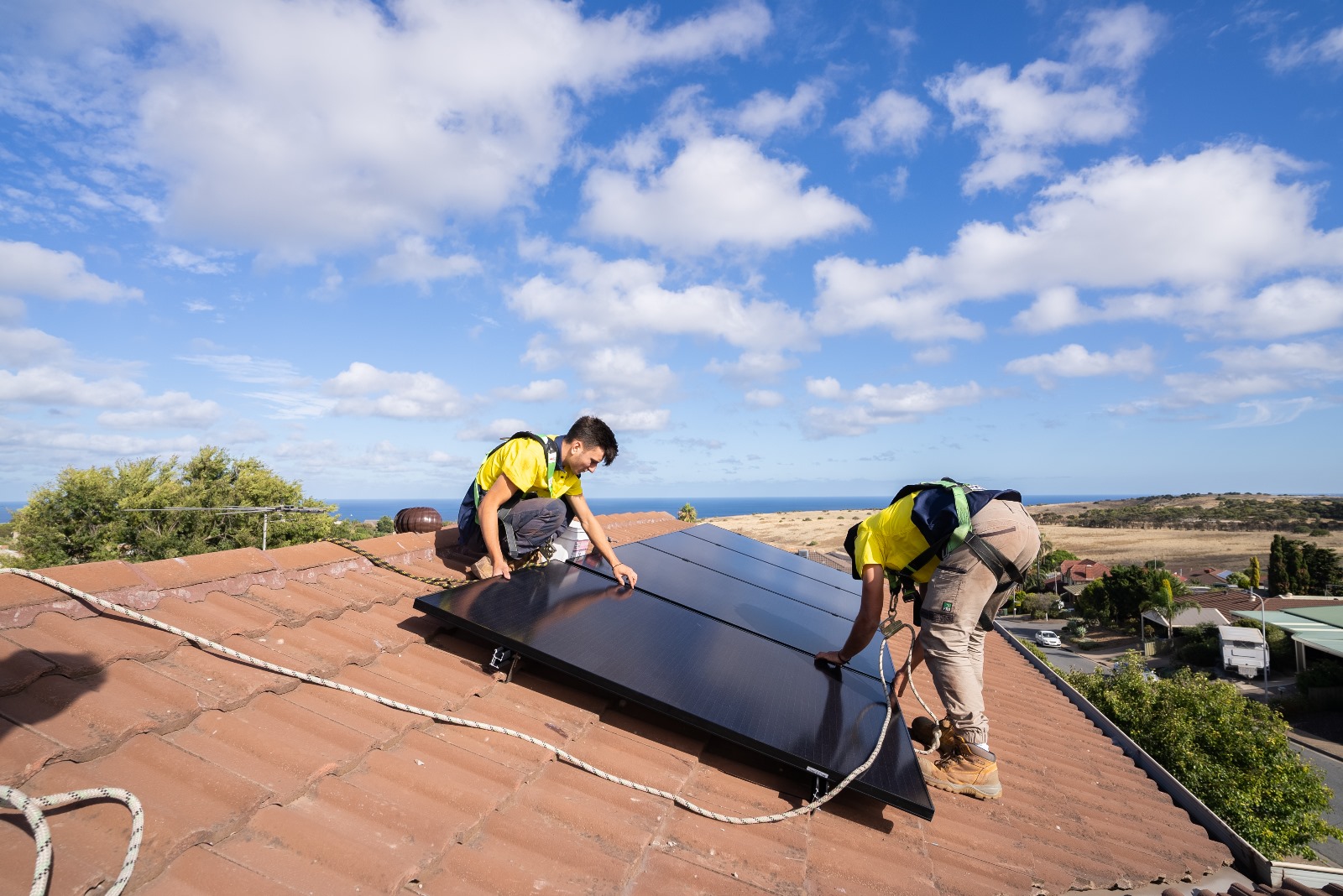The solar energy industry is growing at an impressive pace, driven by the demand for cleaner, more sustainable power sources. But as we scale up solar installations, we face challenges that can slow down progress.
At Solar Cutters, our mission is to unite the solar industry, fostering a strong, collaborative community to overcome these hurdles. By sharing knowledge, solar energy innovation, and support, we can ensure that solar energy reaches its full potential.
Here, we’ll explore common solar installation problems and solutions and highlight innovative approaches that the Solar Cutters community can embrace to drive the industry forward.
1. Limited Roof Space
One of the biggest challenges for residential and commercial solar installations is insufficient roof space. Many properties lack enough room to install the number of panels required to meet their energy needs.
A. High-Efficiency Solar Panels
Modern solar technology has brought advanced panels that produce more power within a smaller area. Options like mono crystalline or bifacial panels offer higher efficiency, enabling maximum energy generation even when roof space is limited.
B. Building-Integrated Photovoltaic (BIPV)
BIPV systems seamlessly integrate solar components into building structures, such as roofs, windows, and façades. This smart design maximises surface use, ensuring optimal energy capture without compromising aesthetics.
2. Shading and Suboptimal Conditions
Shading from trees, buildings, or nearby structures can lower a solar system's efficiency. Similarly, roofs with poor angles or unsuitable orientations can hinder solar energy production.
A. Micro-inverters and Power Optimisers
These technologies enable each panel to function independently. If one panel is shaded, others continue producing power, ensuring minimal energy loss.
B. Flexible Solar Panels
These lightweight and adaptable panels can fit unique surfaces or roofs with challenging angles, making installations possible in more locations.
C. Community Solar Projects
Homes or businesses unable to install solar panels can join community solar farms. This allows them to benefit from renewable energy without needing rooftop installations.
3. Skilled Workforce and Training
The growing demand for solar installations requires a well-trained workforce. In some areas, finding experienced solar panel installers can be difficult, causing project delays and quality concerns.
A. Hands-On Training Programs
Investing in apprenticeships and practical training ensures that new professionals are well-equipped. Solar Cutters can support this by offering educational resources and certification programs.
B. Digital Training Tools
Virtual reality (VR) and augmented reality (AR) simulations allow trainees to practice installations safely and effectively before working on actual sites.
C. Knowledge Sharing Platforms
Through forums, webinars, and meetups, Solar Cutters can continue to provide a space for installers to learn from each other, sharing best practices and troubleshooting tips.
4. Challenging Installation Sites
Not every solar installation is simple. Sites like heritage buildings, skyscraper rooftops, or remote locations pose unique logistical and technical challenges.
A. Pre-Assembled Systems
Modular solar panels built off-site simplify installation by reducing on-site work, ensuring optimal solar panel maintenance and enhancing longevity, making them ideal for difficult-to-access areas.
B. Drone-Assisted Surveys
Drones provide precise rooftop and property data, such as shading, orientation, and dimensions, helping streamline the solar design process.
C. Floating Solar Farms
In areas with limited land or rough terrain, floating solar farms on water bodies offer an innovative way to generate renewable energy.
5. Maintenance and Longevity
Maintaining solar systems for optimal performance is essential. Neglected maintenance or low-quality installations can reduce efficiency and increase costs.
A. Smart Monitoring Tools
Advanced monitoring systems allow users and installers to track performance in real time. Alerts for issues like dirt buildup or under performing panels ensure timely fixes.
B. Durable Materials
New materials and weather-resistant coatings boost solar panel durability, reducing damage from harsh environmental conditions.
C. Maintenance Education
Training users in basic maintenance tasks, such as cleaning panels and checking for damage, helps keep systems efficient. Through the Solar Cutters network, installers can share tips and resources for maintaining systems, ensuring long-lasting success for their clients.
6. Cost Barriers for Consumers
Despite solar energy becoming more affordable, the initial installation cost can still be a challenge for some homeowners and businesses. Here are innovative solutions to address this issue:
A. Flexible Financing Options
Solar leasing and Power Purchase Agreements (PPAs) let consumers install solar systems with little to no upfront payment. Customers pay for the energy their system generates, making solar more accessible.
B. Government Incentives and Rebates
Programs like Australia’s Small-scale Renewable Energy Scheme (SRES) offer financial incentives, reducing installation expenses and making solar power more budget-friendly.
C. Expandable Solar Systems
Offering scalable solar solutions allows customers to start with a smaller system and expand as their energy needs or budget grows. This flexible approach makes switching to solar energy more manageable.
Conclusion
At Solar Cutters, we believe collaboration is the key to overcoming challenges in the solar industry. By sharing innovative solutions, promoting high standards, and supporting each other, we can create a thriving industry that benefits everyone.
The renewable energy sector continues to evolve with breakthroughs in solar energy innovation. From self-cleaning panels to transparent solar cells integrated into windows, the possibilities are limitless.
By embracing these renewable energy installations, we can overcome challenges, and pave a healthy and safe way for a cleaner, greener future.

